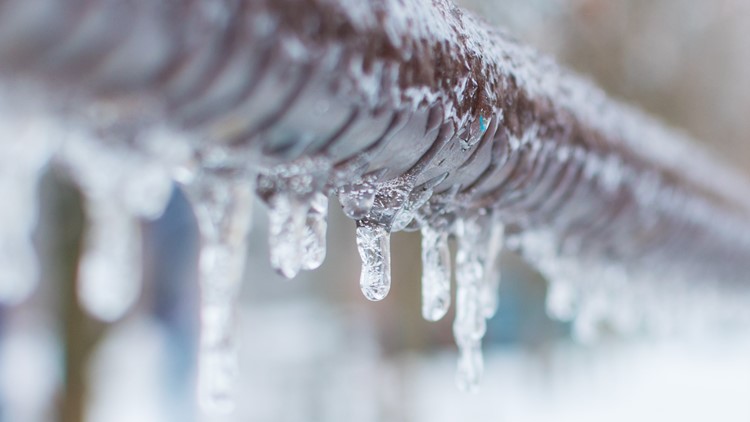We've noticed this post on How to Prevent Your Pipes From Freezing below on the net and reckoned it made perfect sense to write about it with you on this site.

Cold weather can ruin your pipes, particularly by freezing pipes. Right here's how to stop it from happening and what to do if it does.
Introduction
As temperature levels decline, the risk of icy pipes rises, potentially resulting in expensive repair work and water damages. Understanding how to avoid icy pipes is essential for property owners in chilly climates.
Avoidance Tips
Insulating vulnerable pipes
Wrap pipes in insulation sleeves or use warm tape to protect them from freezing temperatures. Concentrate on pipes in unheated or outside locations of the home.
Heating strategies
Keep indoor rooms adequately heated, particularly areas with plumbing. Open up closet doors to enable warm air to distribute around pipes under sinks.
Just how to recognize frozen pipes
Seek lowered water flow from faucets, unusual odors or noises from pipes, and noticeable frost on revealed pipes.
Long-Term Solutions
Structural adjustments
Take into consideration rerouting pipes away from outside walls or unheated locations. Add extra insulation to attic rooms, basements, and crawl spaces.
Updating insulation
Buy top quality insulation for pipes, attic rooms, and wall surfaces. Appropriate insulation aids keep constant temperature levels and lowers the threat of frozen pipes.
Securing Outside Plumbing
Yard tubes and outdoor faucets
Disconnect and drain pipes yard tubes before winter. Mount frost-proof spigots or cover exterior faucets with protected caps.
Comprehending Icy Pipelines
What triggers pipes to freeze?
Pipes ice up when subjected to temperatures listed below 32 ° F (0 ° C) for prolonged periods. As water inside the pipelines freezes, it broadens, putting pressure on the pipeline walls and possibly triggering them to break.
Risks and problems
Icy pipes can bring about water supply disturbances, building damage, and pricey repair services. Burst pipes can flooding homes and create extensive structural damages.
Signs of Frozen Water Lines
Recognizing icy pipelines early can stop them from breaking.
What to Do If Your Pipelines Freeze
Immediate actions to take
If you presume icy pipelines, keep faucets available to alleviate stress as the ice melts. Use a hairdryer or towels soaked in warm water to thaw pipelines gradually.
Final thought
Avoiding frozen pipelines needs aggressive steps and fast reactions. By comprehending the causes, signs, and safety nets, home owners can safeguard their pipes throughout winter.
Helpful Tips to Prevent Frozen Pipes this Winter
UNDERSTANDING THE BASICS: WHY PIPES FREEZE AND WHY IT’S A PROBLEM
Water freezing inside pipes is common during the winter months, but understanding why pipes freeze, and the potential problems it can cause is crucial in preventing such incidents. This section will delve into the basics of why pipes freeze and the associated problems that may arise.
THE SCIENCE BEHIND FROZEN PIPES
When water reaches freezing temperatures, it undergoes a physical transformation and solidifies into ice. This expansion of water as it freezes is the primary reason pipes can burst. As the water inside the pipe freezes, it expands, creating immense pressure on the walls. If the pressure becomes too great, the pipe can crack or rupture, leading to leaks and water damage.
FACTORS THAT CONTRIBUTE TO PIPE FREEZING
Low Temperatures: Extremely cold weather, especially below freezing, increases the risk of pipes freezing. Uninsulated or Poorly Insulated Pipes: Pipes located in unheated areas, such as basements, crawl spaces, or attics, are more prone to freezing. Insufficient insulation or lack of insulation altogether exacerbates the problem. Exterior Wall Exposure: Pipes running along exterior walls are susceptible to freezing as they encounter colder temperatures outside. Lack of Heating or Temperature Regulation: Inadequate heating or inconsistent temperature control in your home can contribute to frozen pipes. PROBLEMS CAUSED BY FROZEN PIPES
- Pipe Bursting: As mentioned earlier, the expansion of water as it freezes can cause pipes to burst, resulting in significant water damage.
- Water Damage: When pipes burst, it can lead to flooding and water damage to your property, including walls, ceilings, flooring, and personal belongings.
- Structural Damage: Prolonged exposure to water from burst pipes can compromise the structural integrity of your home, leading to costly repairs.
- Mold and Mildew Growth: Excess moisture from water damage can create a favorable environment for mold and mildew growth, posing health risks to occupants.
- Disrupted Water Supply: Frozen pipes can also result in a complete or partial loss of water supply until the issue is resolved.
WHY CERTAIN PIPES ARE MORE PRONE TO FREEZING
- Location: Pipes located in unheated or poorly insulated areas, such as basements, crawl spaces, attics, or exterior walls, are at higher risk of freezing.
- Exterior Pipes: Outdoor pipes, such as those used for irrigation or exposed plumbing, are particularly vulnerable to freezing as they are directly exposed to the elements.
- Supply Lines: Pipes that carry water from the main water supply into your home, including the main water line, are critical to protect as freezing in these lines can affect your entire plumbing system.
- Underground Pipes: Pipes buried underground, such as those connected to sprinkler systems or outdoor faucets, can be susceptible to freezing if not properly insulated.
https://busybusy.com/blog/helpful-tips-to-prevent-frozen-pipes-this-winter/

I found that blog entry on How to prepare your home plumbing for winter weather while surfing around the internet. Are you aware of another person who is fascinated about the niche? Please feel free to promote it. I am grateful for your time. Don't forget to check our website back soon.
Book With Us Today!